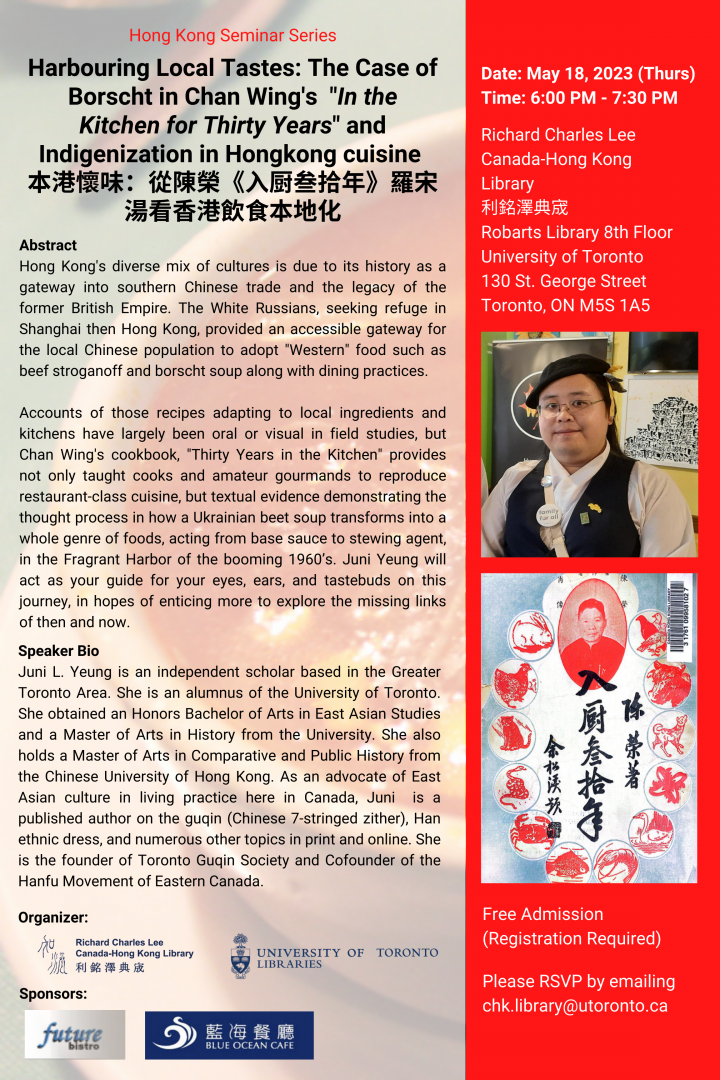
Independent scholar Juni L. Yeung will explore how Chan Wing's cookbook, "Thirty Years in the Kitchen," published in the 1950s, enabled amateur chefs to adapt the Russian borscht soup to local ingredients and Cantonese professional kitchens, resulting in new culinary experiences unique to Hong Kong.
Attendees of the event will have the opportunity to sample Ukrainian and Hong Kong-style borscht soup for free, sponsored by Future Britso and Blue Ocean Café.
Free admission. Please RSVP by emailing chk.library@utoronto.ca.
View the event recordings at:
- Part I: https://youtu.be/PPqB6AUK-dc
- Part II: https://youtu.be/eB19DD8CjYY
Abstract
Hong Kong's diverse mix of cultures is due to its history as a gateway into southern Chinese trade and the legacy of the former British Empire. The White Russians, once a visible ethnic minority in Hong Kong, provided an accessible gateway for the local Chinese population to adopt "Western" food, such as beef stroganoff and borscht soup. Over time, borscht has adapted to local ingredients and Cantonese professional kitchens, resulting in new culinary experiences.
Chan Wing's cookbook, "Thirty Years in the Kitchen" allowed amateur gourmands to reproduce restaurant-class cuisine within the household. The book's entries on borscht demonstrate the soup's versatility as a base sauce and stewing agent, creating entirely new dishes such as "borscht oxtail soup" and "borscht pork hock." The local adaptation of the dish has emphasized its indigenizing textual nature and resulted in a unique soup to Hong Kong.
Bio
Juni L. Yeung is an independent scholar based in the Greater Toronto Area. She is an alumni of the University of Toronto. She obtained an Honors Bachelor of Arts in East Asian Studies and a Master of Arts in History from the University. She also holds a Master of Arts in Comparative and Public History form he Chinese University of Hong Kong.
As ab advocate of East Asian culture in Canada, Juni has posted research essays and articles online. She is also the founder of the Toronto Guqin Society, and one of the founding members of the Toronto Hanfu movement.